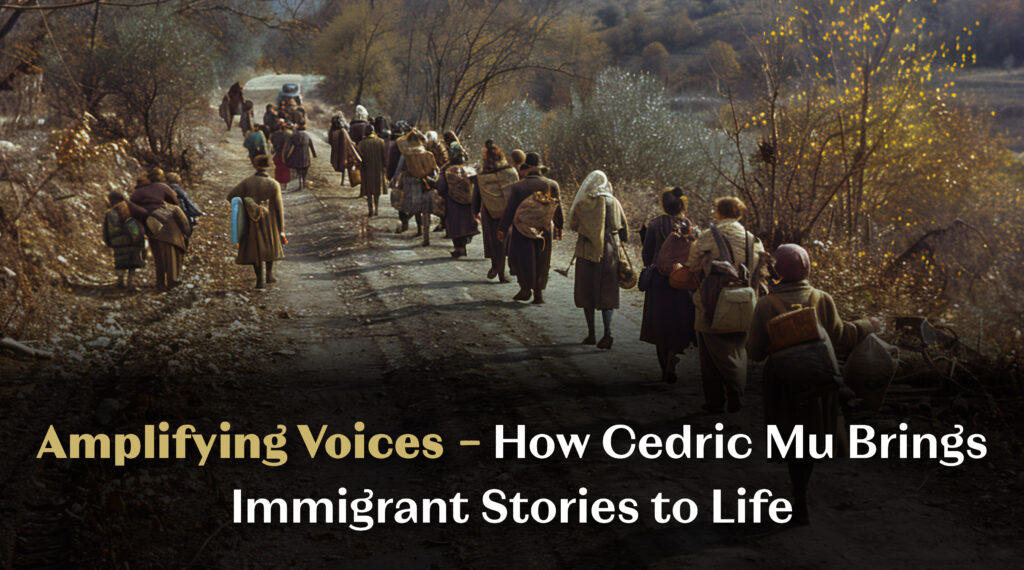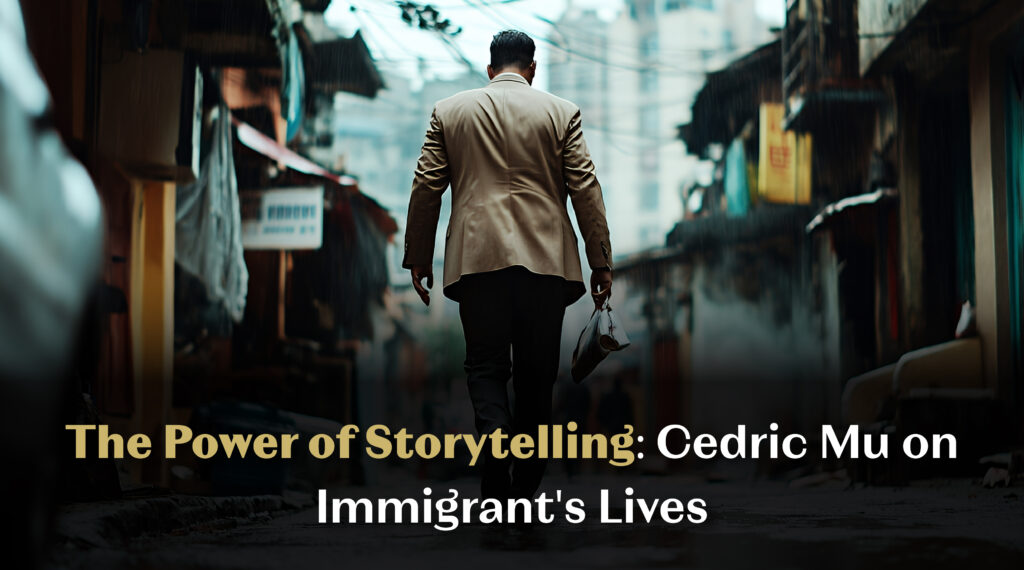Immigrant Stories That Matter: Inside Cedric Mu’s Debut Book
I remember the first time I heard a qaraami melody weave through the air, its lilting notes curling like smoke around the hum of a Detroit street corner. It was a sound that didn’t belong, yet it felt like home—a paradox I’ve carried since my own journey across borders. My name is Cedric Muhikira, and my debut book, Libaax: Grow Your Roots Where You Land, is my attempt to bottle that paradox, to give voice to the immigrant stories that pulse beneath the surface of every city, every life, every heartbeat. Writing Libaax wasn’t just about telling a story—it was about excavating the truths I’ve lived and witnessed. I grew up straddling cultures, my feet planted in two worlds that never quite aligned. One world spoke in the cadence of my childhood, rich with the smells of spiced tea and the laughter of aunties; the other demanded I learn its rhythms, its slang, its unspoken rules. In Detroit, where grit and soul collide, I found the perfect canvas to paint Ayaan’s story—a Somali immigrant who arrives with a civil engineering degree, a suitcase full of memories, and a heart heavy with displacement. Ayaan’s journey in Libaax is not the tidy arc of tragedy or triumph we’re used to hearing about immigrants. It’s messier, more human. He’s scrubbing dishes one minute, spinning records the next, layering Somali qaraami melodies with trap beats as DJ Ayaan. His motorcycle, named Libaax, becomes his escape, his rebellion, his way of painting sagas on the asphalt. “He wasn’t the guy who fumbled slang or froze at Kroger’s endless aisles,” I wrote. “On Libaax, he was elemental—a streak of fire painting sagas on the asphalt.” That line, to me, is Ayaan’s heartbeat—his refusal to be reduced, his insistence on becoming. The inspiration for this book came from late-night conversations with first-generation youth, former refugees, and dreamers who, like me, know the ache of being “almost understood.” I wanted to capture the in-between moments—the dishwashing jobs, the fleeting romances, the friendships that stitch you back together. Ayaan’s connections with Ahmed, a reformed pirate with a quick laugh; Maria, a law student with a sharp mind; and Isabeli, a bartender whose fire matches his own, are the threads that hold his story together. These relationships, like the city of Detroit itself, are raw, vibrant, and unapologetic. Writing Libaax was like building a mixtape. I’d blast qaraami and trap, letting the beats guide my pen. One of my favorite moments was crafting Ayaan’s first DJ gig—a scene where the club’s pulse syncs with his own, where every scent, flicker of light, and bass drop feels alive. The challenge was staying honest. Migration isn’t a monolith; it’s not all pain or all victory. It’s the stubborn beauty of carving space in a world that doesn’t always make room for you. I wanted Ayaan’s story to honor that complexity without romanticizing or pitying it. Why immigrants? Because I am one. Because I know the weight of carrying a story that doesn’t fit neatly into someone else’s narrative. Because too often, we’re flattened into statistics or stereotypes, our truths buried under headlines. Ayaan’s story is a composite of so many real ones—young men who dream big, stumble hard, and keep dancing anyway. Through him, I explore displacement and identity, music as resistance, and the poetry of seeking home in unfamiliar places. I delve into masculinity and vulnerability, showing Ayaan’s emotional interiority, and celebrate the chosen family that anchors us when roots feel out of reach. Libaax is for anyone who loves stories that sing—adult and young adult readers drawn to immigrant narratives, urban fiction, or coming-of-age tales with lyrical prose. It’s for educators, social workers, and students diving into diaspora studies. It’s for anyone who’s ever felt like they’re remixing their own culture to fit a new world. What makes it unique? Its fusion of music, emotion, and urban grit. It’s not just about trauma or assimilation—it’s about how we rebuild joy, forge new rhythms, and claim agency in the chaos. For others, I hope it sparks empathy, curiosity, and a hunger to listen. This book is my bridge, my offering, my way of saying: these stories matter. You can find Libaax: Grow Your Roots Where You Land on Amazon or learn more at cedricmuhikira.com. I’m thrilled to share that I’ll be hosting digital readings on Zoom, visiting book clubs, and holding a book signing at a Detroit independent bookstore this fall. These events are about more than the book—they’re about fostering conversations on migration, identity, and storytelling through music. Stay tuned for dates and details by following me on social media. This is just the beginning. Ayaan’s story, and the stories of so many others, are still being written—on vinyl, on asphalt, in the quiet moments of becoming. I hope you’ll join me in listening to their rhythm.





